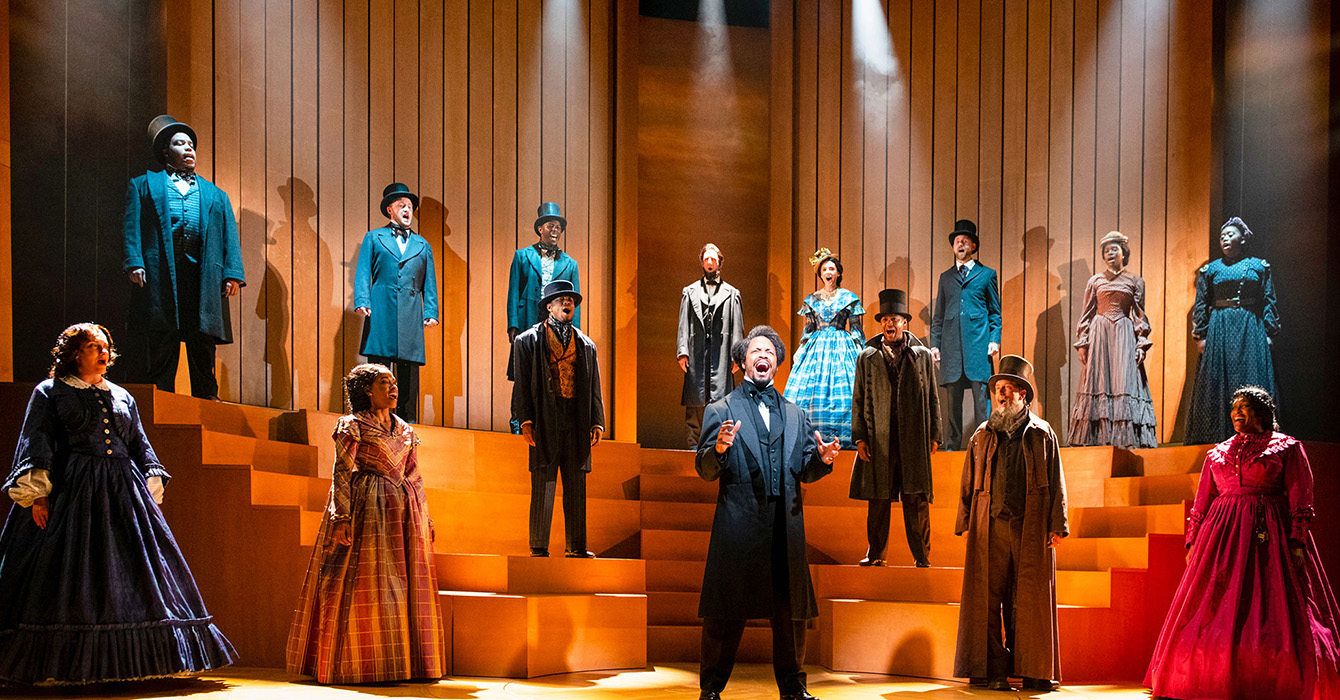How does a Minnesotan become obsessed with Southern gospel?
Unlike many conversion narratives, I can’t pinpoint the hour I first believed. I do know that my encounter with gospel music has transformed my understanding of American popular culture.
My first exposure to the genre occurred on a summer’s day deep in the Lutheran heartland. As was our custom, we accompanied my grandmother to the annual Bible conference at Northwestern College, a non-denominational school in the Minneapolis suburbs. Once led by North Carolinian Billy Graham (who served as president from 1948 to 1952), it was a northern outpost in the “trans-denominational network” of American evangelicalism. There we heard an assortment of preachers and singers, including some who had passed through the magnolia curtain to the world of hot dish and lutefisk. One of these itinerant evangelists was Vance Havner, author of such homespun works as Pepper n’Salt and Playing Marbles with Diamonds. Another was tenor Robbie Hiner, leader of Jerry Falwell’s Old Time Gospel Hour Quartet.
After a morning of gospel music and sermonizing, we had the good fortune of landing behind Hiner in the cafeteria line. As parochial Minnesotans, we had limited experience with American accents below the Mason-Dixon Line. Though I remember next to nothing about Hiner’s performance, I will never forget his zeal for baked goods. “I sure do love brownies!” he exclaimed, as we passed the desserts. Besides occasional exposure to Rex Humbard and Jimmy Swaggart on the family television, that was the extent of my musical education.
Ten years of college and graduate school did little to heighten my appreciation for Southern gospel. Thanks to research by fellow graduate student Bethany Bryson, I learned that gospel and country were not very popular among those with advanced degrees. In “Anything But Heavy Metal,” she found that those two genres (along with Iron Maiden and Black Sabbath) were most likely to be disliked by highly educated Americans. I heard little of either in Princeton, New Jersey.
That changed when I relocated to Indianapolis, America’s northernmost Southern city. A few miles from the Indianapolis Motor Speedway, I taught my first course on religion and American popular culture. I read about the close relationship between gospel music (both black and white) and early rock and roll. Intrigued by the Pentecostal backgrounds of Jerry Lee Lewis and Elvis Presley, I paid close attention to the religious roots of popular music.
The Indianapolis Public Library indulged my growing fascination with the music of Dixie. Borrowing a recording by Hovie Lister and the Statesmen, I immersed myself in the sounds of one of Elvis’s favorite quartets. Transfixed by their performance of “Get Away Jordan” at the Ryman Auditorium, I was hooked. A regional television show further enhanced my enjoyment of the genre. Holding forth from his big leather chair, Ohio’s Norm Livingston played host to dozens of gospel acts. Sponsored by a farmer’s market on Indy’s Southside, an area of both Appalachian and Latino settlement, it was the home of Southern gospel in the Circle City.
Since moving to the Missouri Ozarks in 2004, I have experienced Southern gospel up close. At performances by the McKameys and the late Dottie Rambo, I have seen audience members overcome by tears. At my local United Methodist church, I have heard the sounds of the 101 Sunday School class romping through Albert E. Brumley’s “I’ll Fly Away.”
Thanks to local musicians Big Smith, Ozarkers can sing the songs of Zion in the taverns and nightclubs of Southwest Missouri. My favorite comes from the pen of Big Smith’s Jody Bilyeu. Frustrated by Southern gospel’s death-haunted lyrics, he focuses on the life and teachings of Jesus. Here is Bilyeu’s version of the “upside-down kingdom”:
The rich man’s poor–
That poor boy’s wealthy.
The strong man’s weak–
The sick girl’s healthy.
The stranger belongs
The right man’s wrong
When Jesus turns the world around
Hearing Bilyeu put the gospel in Southern gospel makes me fly away.
John Schmalzbauer is a sociologist of religion teaching at Missouri State University in Springfield, University. He is the author of "People of Faith: Religious Conviction in American Journalism and Higher Education" (Cornell University Press 2003).







